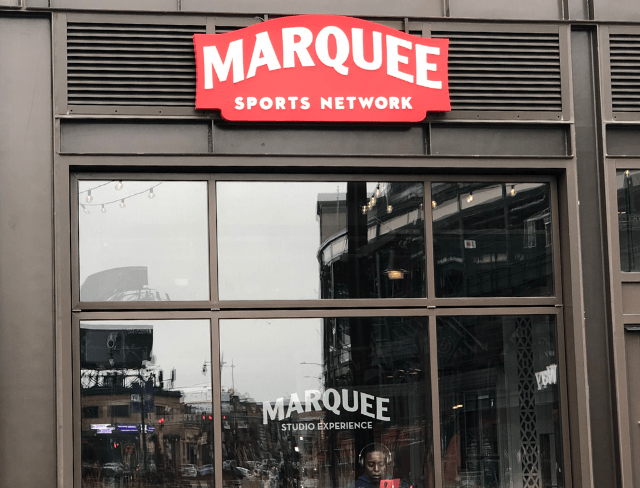

One bright spot for Sinclair was the July agreement it struck with Comcast to carry Marquee, its other regional sports networks, the Tennis Channel and 78 local TV stations. The RSN group’s business has been rocked this year by reduction of games because of the pandemic and the loss of some carriage deals with pay-TV distributors.

The Wall Street Journal reported Tuesday that Diamond Sports, Sinclair’s regional sports network subsidiary, was seeking to restructure an estimated $8 billion debt load. Marquee’s spokesman has yet to respond to a Chicago Tribune inquiry. No one has publicly explained yet what spurred the abrupt divorce between so many of Sinclair’s regional sports networks and Hulu, or clarified whether this looks to be a long-term split. So the channel, like all regional sports networks, has been unable to fulfill its promise or potential for reasons well beyond anyone’s control. But, because of the COVID-19 pandemic, spring training was aborted, then the regular season was postponed and later abbreviated. 22.Ī team spokesman was left to say, “The provider determines the launch date for the service.”Įventually Hulu began carrying Marquee. Just as the fanfare was dying down, the streaming service surprised many by saying it would not actually be sharing Marquee with its Hulu + Live TV subscribers when the Cubs played their spring training opener on Feb. 17, when they announced a carriage agreement covering the Cubs TV territory five days before the channel’s debut. Hulu and Marquee have had an odd relationship from Feb. But if it’s to connect with Cubs fans - many of whom are still bitter about its mere existence - Marquee must make credibility its priority.It also coincides with some area subscribers of Comcast’s Xfinity complaining about a rate increase the service attributes to the carriage of Marquee. It’s great that Marquee wants to connect to the city’s sports-talk history. “The Sports Writers on TV” never pulled punches. There have been times during postgame shows when the crew has noticeably strained for positivity. Marquee entered the Chicago sports scene facing concerns about the objectivity of its Cubs coverage.

Airing the show live is a big step toward that. Content is king, and it might take awhile to regain viewers’ trust. What it didn’t need was to give viewers a reason not to watch. I believe that’s what the Cubs will want.”įor the show to draw viewers, it needs that passion. You’d think that the powers that be understand that people are passionate in Chicago, and reporters will reflect that passion. “In the spirit of sports-talk radio in Chicago, it was tame. “It really felt like it was not a big deal,” Kusinski said. But this is not a Cubs management-Marquee management swath across the bow that no one’s ever critical of the Cubs because that’s not the case in this show’s brief history. We’re going to remove that element to it because people make decisions that other people wouldn’t make. “It’ll be pretty hard to censor somebody that’s on live television. Because the luxury of taping the show was in place, some people decided to get a little careful and avoid, among other things, repetition from other shows. “Going forward, the show will be live, and the reporters on it are completely unedited, as the intention really has been all along. “A judgment was made on the fly that in retrospect was overly sensitive,” McCarthy said. In response to questions about the incident, Marquee general manager Mike McCarthy said the show will now air live. What the show is missing is clouds of cigar smoke and, at least for one episode, credibility.ĭuring taping Sunday of its fourth show, Marquee didn’t air a segment in which the panel questioned Cubs president Jed Hoyer’s transparency regarding the team’s roster rebuild.

But they sit around a similar card table with a similar pool-hall light above them and the same black background behind them. “The Reporters” records and airs Sunday mornings with different panelists each week.


 0 kommentar(er)
0 kommentar(er)
